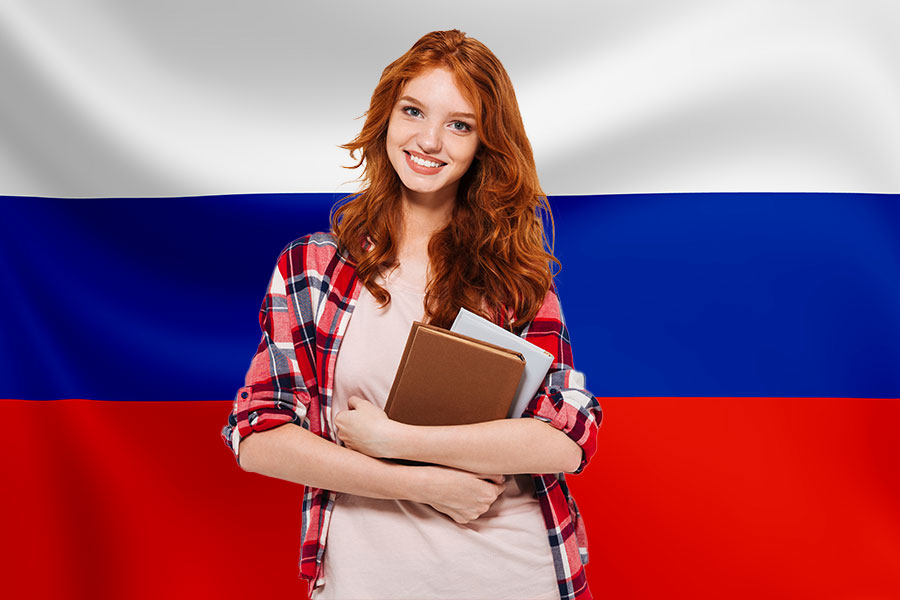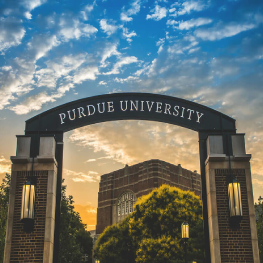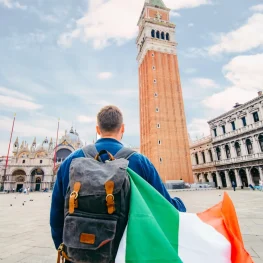The complete guide to studying abroad in Russia
Russia, with its prestigious universities, high-quality education, and affordable costs, is one of the most popular destinations for international students. Studying in this country not only provides recognized academic degrees but also offers an opportunity to experience its rich culture and live in one of the largest countries in the world.
Studying at Russian universities is more affordable compared to many European countries, and it offers the opportunity to study a variety of fields including medicine, engineering, and humanities. Additionally, many universities in Russia provide international students with well-equipped dormitories and suitable welfare facilities.
Graduates of Russian universities have the opportunity to enter the job market both within the country and internationally. If you’re looking to study in a country with reputable universities and diverse academic opportunities, Russia could be an ideal choice for you.

Academic Admission
Russian universities are considered one of the most popular destinations for international students due to their high-quality education, recognized degrees, and diverse programs. Some universities offer the option to study in either Russian or English, and the cost of education in this country is more affordable compared to European countries.

Specialized Consultation
Studying abroad in Russia requires knowledge of admission requirements, visas, and choosing the right university. Our consulting team will assist you at every stage, from selecting a program and university to obtaining admission and handling visa matters, ensuring a successful experience on this journey.

Residence and Employment After Graduation
International students in Russia can work part-time during their studies. After graduation, it is possible to obtain a work visa and permanent residence for those who find employment in Russia. Additionally, a degree from Russian universities can open up broad career opportunities internationally.
Table of Contents
Reasons for Immigration to Russia
Russia is a major destination for international students seeking to study at reputable and affordable universities. With an advanced education system and universities ranked highly worldwide, the country welcomes thousands of students from all over the globe every year. Russian academic degrees are recognized in many countries around the world, providing broad career opportunities for graduates.
One of the key advantages of studying in Russia is the diversity of academic programs. Students can pursue degrees in various fields including medicine, dentistry, pharmacy, engineering, humanities, and arts. Many Russian universities offer courses in English, in addition to Russian, which makes the study process easier for international students.
The cost of education and living in Russia is lower compared to many European countries. University tuition fees are affordable, and living expenses are much more economical compared to Western countries. This has made Russia one of the best options for students seeking quality education in an affordable environment.
Another advantage of studying in Russia is the opportunity to work during studies and after graduation. International students can work part-time during their studies and apply for a work visa and residence after completing their studies. Additionally, some Russian universities have close partnerships with industries and large companies, creating excellent job opportunities for students and graduates.
In addition to its strong educational system, Russia has a rich culture and history, a vibrant social life, and beautiful nature, which together create a unique experience for students. With its prestigious universities, affordable costs, and job opportunities, Russia can be one of the best choices for students seeking an international-level education.
Getting to Know Russia
Russia, the largest country in the world, is considered one of the most popular destinations for international students due to its rich history, diverse culture, and strong educational system. The country is home to prestigious universities that are globally recognized and offer a wide range of academic programs.
In addition to its outstanding educational system, Russia offers a unique experience for students and immigrants with its breathtaking nature, historic cities, and comfortable living conditions. From vast forests and frozen lakes to modern cities like Moscow and St. Petersburg, the country presents a blend of tradition and modernity.
Russian universities offer programs in a wide range of fields, including medicine, engineering, technology, arts, and the humanities. Many of these universities, such as Moscow State University and St. Petersburg University, hold high positions in international rankings, and their degrees are recognized in many countries around the world. Additionally, some academic programs are offered in English, making it easier for international students to pursue their studies.
One of the advantages of studying in Russia is the lower cost of education and living compared to Western countries. Tuition fees at universities are affordable, and students can work part-time while studying. Additionally, graduates of this country have various job opportunities and can apply for a work visa after completing their studies.
Due to its vast geographical size, Russia has a diverse climate, stunning natural landscapes, and historic cities that attract many tourists each year. The magnificent architecture of traditional churches, famous museums, and cultural festivals make this country an attractive destination for students and immigrants.
With its strong educational system, affordable costs, job opportunities, and dynamic cultural environment, Russia can be one of the best choices for students seeking an international-level education and a unique experience.
Advantages and Disadvantages of Living in Russia
Advantages of Living in Russia:
- The cost of living is affordable compared to many European countries.
- World-renowned universities with diverse programs and advanced facilities.
- The opportunity to receive scholarships for international students.
- A wide and efficient transportation network including metro, trains, and public buses.
- A rich culture and history with magnificent architecture and famous museums.
- A strategic geographical location and easy access to travel to other countries in the region.
- A growing economy and job opportunities for graduates in certain fields.
Disadvantages of Living in Russia:
- Extremely cold weather in most parts of the country, especially during the winter.
- The Russian language can be challenging for immigrants who are not familiar with it.
- The high rate of administrative corruption in some government sectors.
- Complex and time-consuming administrative processes for obtaining visas and residence permits.
- The long distances between major cities, making domestic travel challenging.
- The lack of English proficiency among many people, which can create challenges in daily communication.

Types of Russian visas
Russia, with its diverse visa system, provides the opportunity for entry and residence for various applicants. Each type of visa has its own specific conditions, and depending on individual needs, the appropriate option can be chosen.

Student Visa:
Students who wish to continue their studies at Russian universities can apply for a student visa. This visa is typically issued for one year and can be extended until the completion of their studies.

Family Visa
Family members of Russian citizens and residents can immigrate to Russia through a family reunification visa. This visa requires the submission of documents proving the family relationship, and its duration is determined based on the applicant’s circumstances.

Work and Employment Visa
Individuals who wish to work in Russia can obtain a work visa based on their skills and expertise. This visa is usually sponsored by a Russian employer and is issued depending on the type of employment contract.

Investment Visa
Investors who wish to start a business or purchase property in Russia can apply for an investment visa. This visa is typically granted to major economic investors in Russia.

Refugee visa
Individuals who cannot remain in their home country due to specific social, political, or security conditions can apply for asylum. This visa has specific conditions and regulations, and the acceptance process may be time-consuming.

Tourist Visa
Russia is an attractive destination for tourism, and individuals can apply for a tourist visa for short-term visits. This visa is typically issued for 30 days, with the possibility of extension under specific conditions.
Conditions for studying in Russia
Russia is a popular destination for international students seeking affordable education with high academic quality. Russian universities offer a wide range of academic programs, and international students can choose to study in either Russian or English. Bachelor’s programs in Russia typically last 4 years, Master’s programs are 2 years, and Doctoral programs range from 3 to 5 years. Some of Russia’s universities have global recognition, and their degrees are recognized in many countries.
In addition to affordable tuition fees, students can benefit from Russian scholarships that cover part of their living and study expenses. Furthermore, students have the opportunity to obtain a student visa and work part-time to cover additional costs.
Foundation course in Russia
Some Russian universities offer foundation courses for international students who need to improve their Russian language skills or familiarize themselves with basic academic subjects. These courses typically include language training, mathematics, physics, and other foundational subjects related to the student’s field of study. The duration of these courses usually ranges from 6 months to 1 year, and completing them is mandatory for certain programs.
The best universities in Russia
Russia is home to prestigious and well-recognized universities that hold strong positions in global rankings. Moscow State University, Bauman Moscow State Technical University, and St. Petersburg University are among the top universities in the country, offering a wide range of academic programs. These universities provide advanced facilities for students and attract a large number of international students each year.
MedicaApply Work Process
The Process of Student Immigration from Iran to a Destination Country:

Consultation and receipt of documents
Providing Specialized Advice on Choosing the Right Country, Program, and University Based on Your Conditions.

University admission
Translation and submission of academic documents to selected universities, follow-up on applications, and obtaining acceptance from reputable universities in various countries.

Obtaining a study visa
Handling all matters related to the visa application, submitting documents to the embassy, and following up on the process of obtaining a student visa for entry into the destination country.

Immigration to the destination country
Entering the destination country and completing all administrative procedures related to residency and studies at the university, along with receiving the necessary guidance.
Frequently Asked Questions (FAQ)
Does studying medical sciences abroad require a language proficiency certificate?
Yes, most universities require a language proficiency certificate. However, some universities offer admission without a language certificate, but this may negatively impact the chances of obtaining a visa.
How much are the tuition fees for medical sciences programs abroad?
The costs vary depending on the country and university. In general, tuition fees for medical sciences universities range from $5,000 to $30,000 per year. Living expenses also depend on the chosen country.
Is it possible to receive a scholarship for studying medical sciences abroad?
Yes, some universities and institutions offer scholarships based on academic merit or financial need. However, full scholarships for medical programs are usually more limited.
Is it possible to work while studying medical sciences abroad?
Yes, students are usually allowed to work 20 hours per week during their studies and full-time during holidays. After graduation, they can apply for permanent residence by securing a related job.
What are the requirements for obtaining a dependent visa for family members?
In most countries, the spouse and children of students can obtain a dependent visa. In some countries, the spouse of the student is allowed to work full-time, provided they meet legal requirements such as paying taxes and having insurance.

